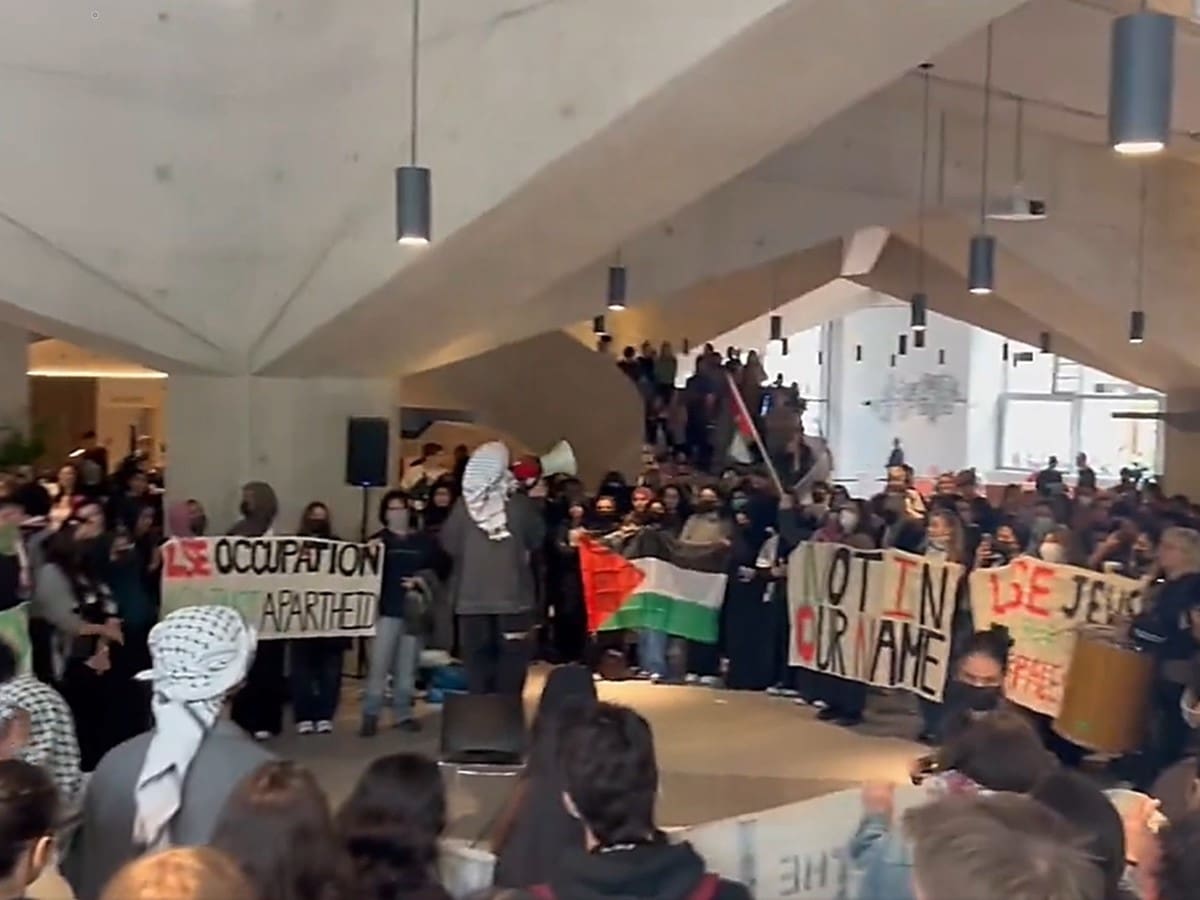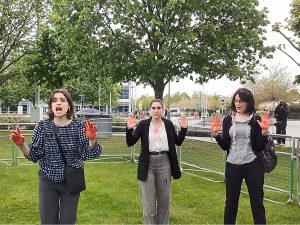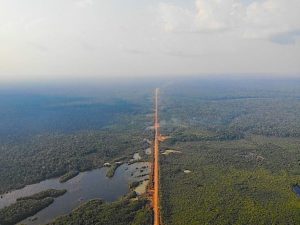Students at a London university, the LSE, have not only occupied it – protesting against Israel’s ongoing genocide in Gaza – but have also produced a huge report. It details the university’s complicity in not only war crimes but also the climate crisis.
LSE protests: Israel, genocide, fossil fuels
On Tuesday 14 May at 3:15pm, London School of Economics (LSE) students and staff occupied the Marshall building on campus, setting up an encampment with around 150 occupants at its height:
BREAKİNG
LSE students OCCUPY Marshall Building in solidarity with Palestine and set up an encampment pic.twitter.com/bNH75Q2mDh
— Ayça Çubukçu (@ayca_cu) May 14, 2024
Joining the wave of student encampments around the world and in the UK, students and staff called for the university to divest from crimes against the Palestinian people, fossil fuels, the arms trade, and financiers of these egregious activities:
Historic rally at LSE, demanding an immediate divestment of £89 million. pic.twitter.com/eXYFQoGzNj
— mahvish 🌹 مہوش (@mahvishahmad) May 14, 2024
Students also stated their intent to disrupt business as usual given the ongoing genocide in Gaza, choosing the Marshall Building in part because of its centrality as a hub for university events. At 5pm, representatives of the encampment met with members of LSE senior management to discuss the terms of engagement for future conversations.
The occupation of Marshall followed the release of the report Assets in Apartheid: LSE’s Complicity in Genocide of the Palestinian People, Arms Trade, and Climate Breakdown, authored by the LSE Student Union Palestine Society, at a press conference that began at 1:15pm that day:
HAPPENING NOW: Huge rally at LSE to launch a report documenting the university’s secretive investments of £48.5 million in companies complicit in Israel’s crimes and genocide against the Palestinian people. Students are demanding: Disclose and divest! pic.twitter.com/AtHAr2exjq
— Lukas Slothuus (@lslothuus) May 14, 2024
The report is now available online here.
Complicit in genocide
At the press conference, student speakers condemned the “egregious complicity of this bloody university in [Israel’s] genocide of the Palestinian people.”
They outlined LSE’s investments in crimes against the Palestinian people; weaknesses in its Environmental and Social Governance (ESG) policy, and recommendations including divestment, democratisation of the financial decision making process, and substantial revisions to the school’s ESG.
They were joined by Andrew Feinstein, former member of the African National Congress, who drew connections between the current student movement and student support for Nelson Mandela’s struggle against apartheid. Neil Sammonds from War on Want and Katie Fallon from Campaign Against Arms Trade also expressed the support of their organisations for the report.
Written by the LSESU Palestine Society and using publicly available data, the report details the School’s investment of at least £89m (18.4% of its £485m portfolio) in 137 companies involved in four egregious activities.
LSE protests: divestment now
These four egregious activities are:
1) Crimes against the Palestinian people.
2) Extraction and/or distribution of fossil fuels.
3) Proliferation and/or manufacture of arms.
4) The financing of fossil fuel companies and/or nuclear weapons producers.
This includes: £5,310,537 in 11 companies that are profiting from the genocide in Gaza and £1,627,002 invested in four business enterprises listed by the Office of the High Commissioner for Human Rights as involved in illegal settlement activities.
The report calls on the LSE to divest from companies engaged in any of the four activities and to democratise the governance of the investment portfolio to be transparent and guided by an updated Environment and Social Governance (ESG) policy that can actively respond to human rights violations.
Featured image via X – screengrab




